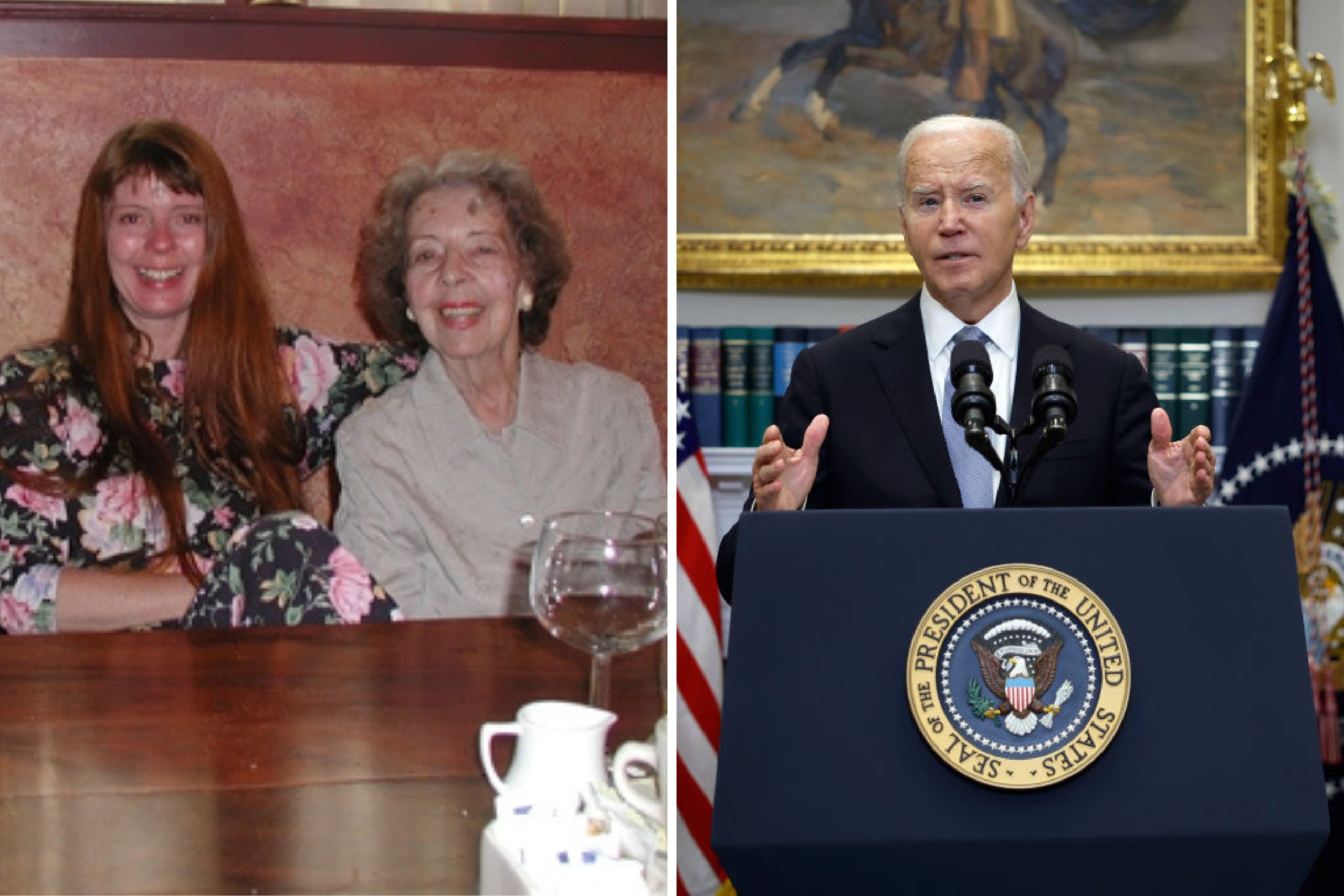When I was in my late 20s, I became obsessed with old age. The slow decline, the sagging skin, the faltering memory, the eventual demise—it all terrified me. To batten down the hatches against impending doom, I read up on nursing homes and assisted living and in-home care, arming myself with information about what—the knees or the memory—might go first.
My fear wasn’t about myself, but my mother. She was on the brink of 70, and I didn’t know how to handle that.
My mother herself was fine. Occasionally she expressed concern that I might turn 30 without a husband and children, but she was healthy. She had an active social life and a stack of ballroom dance awards. If I mentioned my fears, she waved it away with a characteristic “Oh, phooey.”
The problem, I see now, was not her age but my own ageism.
Listening to the hubbub over President Biden’s performance in the recent debate against Donald Trump, I’ve been remembering that time. Some Democrats, acting as if Biden’s age were breaking news, want to replace him on the ticket rather than focusing on the barrage of lies from an ex-president who, whatever the Supreme Court says about immunity, was convicted on 34 felony counts and has been indicted on dozens more.
Again, the problem isn’t Biden’s age but our own ageism. It’s based on fear, and we’re on the verge of sacrificing democracy to it.
Simply put, ageism is the idea that what we should be doing, or can do, is tied to the number reached on our last birthday. It’s a stereotype often used to target people past a certain age. Though what that age is—40 to 80—changes over time, making “too old” a moving target in this fickle form of prejudice.
Jane Marcellus/Kevin Dietsch/Getty Images
I remember feeling “old” on my own 23rd birthday. Taking a semester off from college made me finish late, missing what I considered the “normal” graduation age of 22. As if it mattered. More famously, those in the 1960s youth movement used to warn one another, “Don’t trust anyone over 30.”
Ageism is often gender-based. If you don’t believe this, imagine the public reaction if an 81-year-old woman tried running for president. When I turned 18 as a high school senior in Oklahoma, I found myself with a legal right my male classmates wouldn’t have for another three years. I could legally buy 3.2 beer, thanks to the wisdom of Oklahoma legislators decades earlier. Unaware that the U.S. Supreme Court’s ruling in Craig v. Boren would soon overturn the law, I asked a teacher about the discrepancy. “Girls mature faster than boys,” she replied matter-of-factly. I shrugged. It must be true.
Just as 30 once mattered as the supposed cut-off for marriageability and acceptance by the hippie generation, 40 marked a Maginot Line for getting a job for both sexes. Help-wanted ads, legally sex-segregated until 1973, often listed age requirements for applicants. “Men—aged 23-44. Pref. married,” reads an example from a California paper, published before the 1967 Age Discrimination in Employment Act (ADEA) began to protect those 40. Unfortunately, it’s still a problem.
I vividly remember the fear that infused our house the year I was four and my mother was 42. My father had been badly injured in a car accident, so for a while, he couldn’t work. Although my mother had two decades of job experience and a national award for managerial skills, the fact that she was 42 and not, say, 39 meant she had trouble finding a secretarial job. She finally did, thanks to someone who valued qualifications over age.
Valuing qualification over age is what Democrats owe Joe Biden, though I hope he doesn’t debate Trump again. Debate is about an exchange of ideas—impossible with a bully who lies. Why bother?
I wish I’d known in my 20s that my mother would dance till she was 85 and live to be nearly 90, or that her sister, my favorite aunt, would rebuild her house at 91.
Jane Marcellus is a freelance writer whose work has been published in academic and literary journals and in newspapers including the Washington Post. She is also author of Business Girls & Two-Job Wives: Emerging Media Stereotypes of Employed Women and two co-authored books on the TV show Mad Men.
All views expressed are the author’s own.
Do you have a unique experience or personal story to share? See our Reader Submissions Guide and then email the My Turn team at myturn@newsweek.com.
Uncommon Knowledge
Newsweek is committed to challenging conventional wisdom and finding connections in the search for common ground.
Newsweek is committed to challenging conventional wisdom and finding connections in the search for common ground.
